In today’s hyper-fast, multi-tasking world, one of the great attractions of camp is tradition. Each camp passes down its own stories and lore. Campers appreciate that they’re enjoying some of the same activities, in the same way, as campers before them have done for generations.
But few people realize just how much history the camp industry embodies.
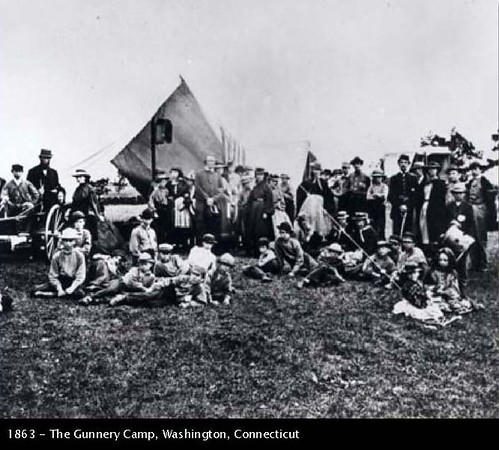 The first camp – called the Gunnery – was founded in 1861 in Washington, Connecticut. That’s right — camping is as old as the Civil War, and this year celebrates its 150th anniversary. Early campers enjoyed boating, fishing and trapping. It’s pretty impressive that two of those activities survive at camps, a century and a half later.
The first camp – called the Gunnery – was founded in 1861 in Washington, Connecticut. That’s right — camping is as old as the Civil War, and this year celebrates its 150th anniversary. Early campers enjoyed boating, fishing and trapping. It’s pretty impressive that two of those activities survive at camps, a century and a half later.
An 1876 camp was created to take “weakly boys” into the woods. We wouldn’t use those terms today – but camps still serve all kinds of children, in all kinds of ways. And we’re still in the woods.
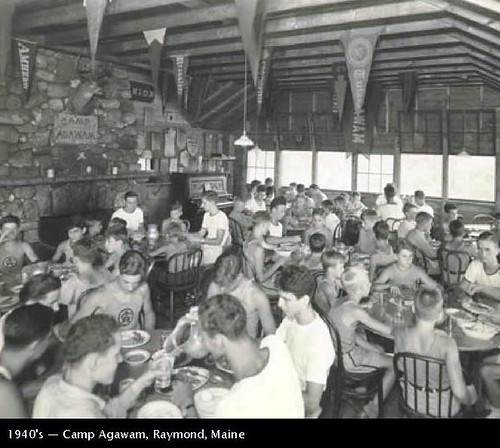 The first YMCA camp was Dudley, in 1885. It’s still around – the longest continually operating camp in the United States. Scores of other camps date back to the late 19th and early 20th centuries.
The first YMCA camp was Dudley, in 1885. It’s still around – the longest continually operating camp in the United States. Scores of other camps date back to the late 19th and early 20th centuries.
With over 100 camps – some dating back 100 years, welcoming scores of camping “generations” – Maine has long been one of camping’s most popular states.
Boasting crystal-clear lakes, pine forests, mountains and (don’t worry) moose, Maine is (like camping itself), “easy to get to, but very difficult to leave.”
Camping boomed nationally in the 1950s and 60s – along with much of post-war America. In 1948 the American Camping Association adopted Standards – the basis for ACA camp accreditation. There are currently 300 Standards for health, safety and programs. They’re recognized by courts and government regulators – a seal of approval for any camp to which parents entrust their most precious possessions.
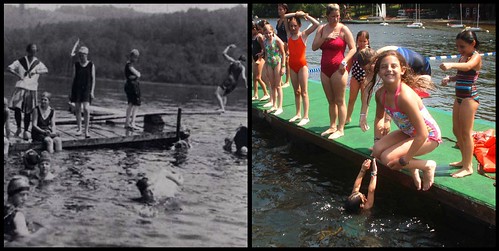
The ACA was a pioneer in anti-discrimination resolutions. The first was adopted in 1950. Since then, the industry has continued to emphasize youth development. Camp directors constantly study research in areas like child and adolescent development, and risk prevention. They understand that positive experiences, strong relationships, challenging opportunities and solid personal values are vital to helping young people grow into healthy, caring and responsible adults.
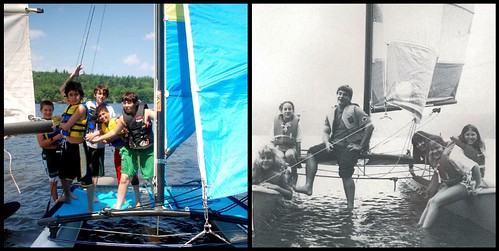
Frederick W. Gunn and his wife Abigail might not have used terms like those 150 years ago, when they founded The Gunnery Camp. But they intuitively understood the many benefits that camping provided. All of us in this important industry proudly honor the traditions of the past.
My colleagues and I will not be here 150 years from now to carry them on.
But we’re confident our successors – and our camps – will.
Sincerely,
Jeffrey
Guest Blogger and former Maine camper and counselor
*Historical photos courtesy of the American Camp Association – www.acacamps.org

 570-798-9831
570-798-9831
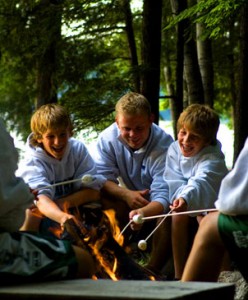
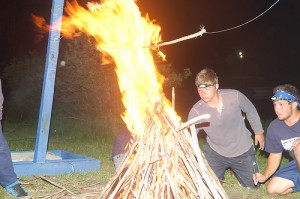
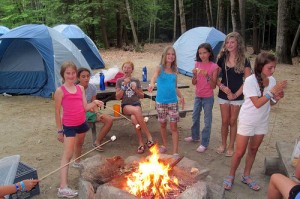
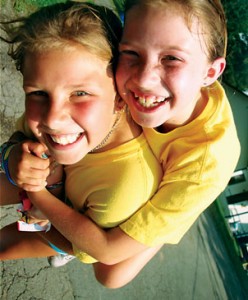
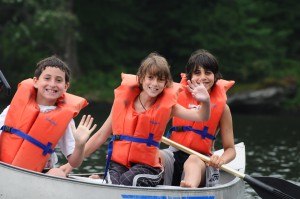
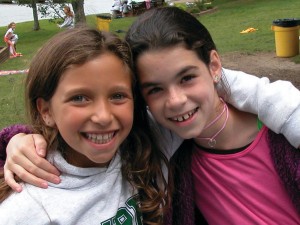

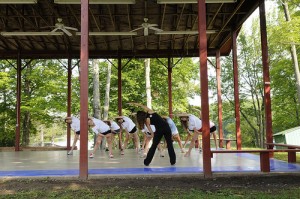
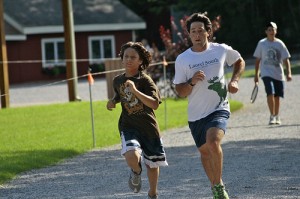
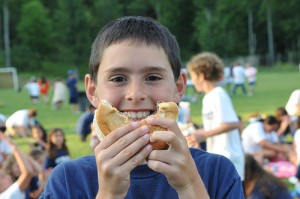
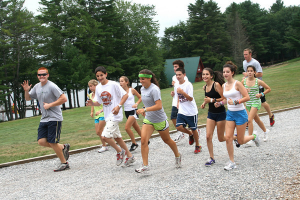
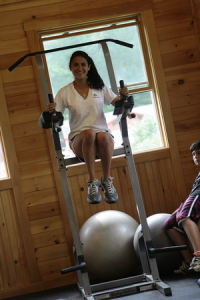
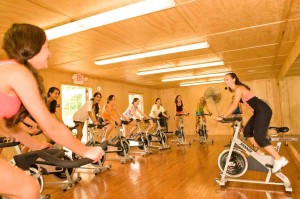
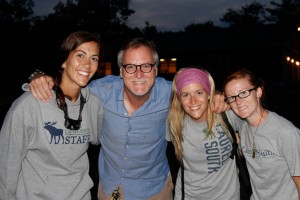
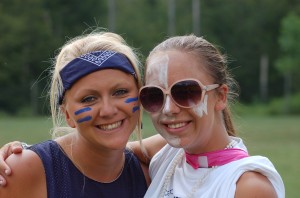
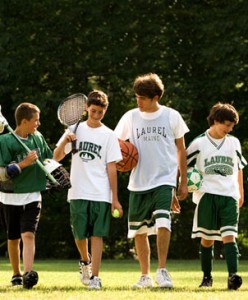
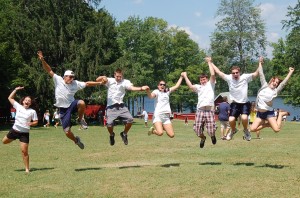
 Our society has long promoted the idea that intelligent people do well on tests and earn good grades. But Howard Gardner, a Professor of Education at Harvard University argues that there are
Our society has long promoted the idea that intelligent people do well on tests and earn good grades. But Howard Gardner, a Professor of Education at Harvard University argues that there are 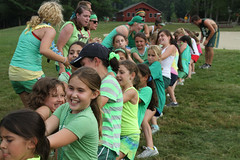 Camp experiences are designed with the whole child in mind and to take things further. Camp helps children develop respect for others, hone personal character, and learn to negotiate and appreciate diverse people. Although this learning should take place all year long, most education systems operate on old models, so summer camp provides
Camp experiences are designed with the whole child in mind and to take things further. Camp helps children develop respect for others, hone personal character, and learn to negotiate and appreciate diverse people. Although this learning should take place all year long, most education systems operate on old models, so summer camp provides 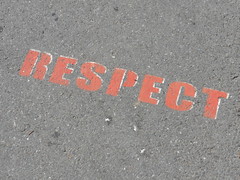


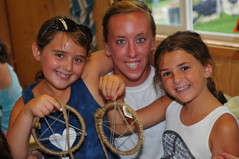


 Moving from one year towards the next has me thinking about summer camp in the past and future.
Moving from one year towards the next has me thinking about summer camp in the past and future.  As summer camps have become more inclusive, the world that children experience both in the United States and globally has also become very different. Many children have access to a much broader world through travel, moving images, or other technologies, but some things just haven’t changed. For instance, our pre-college age identities are still informed by interactions with peers and people connected to our individual worlds, directly translating to the people we make direct contact with. While community is still central to human development, many of our daily communities are no longer bound by neighborhood blocks tied to local shared institutions and celebrations. Our families and extended social circles filter across state, nation and even electronic borders.
As summer camps have become more inclusive, the world that children experience both in the United States and globally has also become very different. Many children have access to a much broader world through travel, moving images, or other technologies, but some things just haven’t changed. For instance, our pre-college age identities are still informed by interactions with peers and people connected to our individual worlds, directly translating to the people we make direct contact with. While community is still central to human development, many of our daily communities are no longer bound by neighborhood blocks tied to local shared institutions and celebrations. Our families and extended social circles filter across state, nation and even electronic borders. SO, since children today live in this exciting world of shifting boundaries most months of the year, summer camp is the perfect environment to find time for nurturing our human need to create community. For the past century and through some necessary changes, the basic premise of summer camp has remained the same—camp is a designated, safe space dedicated to fostering and experiencing community life, personal development and skill-building. Each year as improvements are made to camp facilities and other choices, some things don’t change, like living in cabins or bunks, daily activities together, arts and crafts, hikes, water and land sports, singing camp songs and roasting marshmallows around campfires to name a few!
SO, since children today live in this exciting world of shifting boundaries most months of the year, summer camp is the perfect environment to find time for nurturing our human need to create community. For the past century and through some necessary changes, the basic premise of summer camp has remained the same—camp is a designated, safe space dedicated to fostering and experiencing community life, personal development and skill-building. Each year as improvements are made to camp facilities and other choices, some things don’t change, like living in cabins or bunks, daily activities together, arts and crafts, hikes, water and land sports, singing camp songs and roasting marshmallows around campfires to name a few!  Past, present and future campers are all part of a lively and creative shared community where remembering a song, a person, an event, a skit, food or a poignant moment can instantly transport peers back to camp. So, what you would add to a time capsule to “capture” the timeless spirit of camp and why? We’d love to hear what alumni and present campers would include in an electronic time capsule, so get scanning or writing up those memories and lessons learned! If you’re not sure how to get started, ask questions in the comments below!
Past, present and future campers are all part of a lively and creative shared community where remembering a song, a person, an event, a skit, food or a poignant moment can instantly transport peers back to camp. So, what you would add to a time capsule to “capture” the timeless spirit of camp and why? We’d love to hear what alumni and present campers would include in an electronic time capsule, so get scanning or writing up those memories and lessons learned! If you’re not sure how to get started, ask questions in the comments below!



 As we all know, time passes and our camp years are limited by the fact that we’re only children once. It’s easy to feel briefly melancholy at year’s end as time waits for no one, but of course, December also means that the promise of a new year is around the corner! In January, we’d like to continue looking backwards and forwards while thinking about camp and we’d especially love to hear from camp alumni. What’s the funniest thing that happened to you at camp? How did camp contribute to your adult life? We’d like to hear about the memories you hold dear and close to your heart, or what you wish for campers next year? If you’re counting the days until camp starts, what are YOU planning?
As we all know, time passes and our camp years are limited by the fact that we’re only children once. It’s easy to feel briefly melancholy at year’s end as time waits for no one, but of course, December also means that the promise of a new year is around the corner! In January, we’d like to continue looking backwards and forwards while thinking about camp and we’d especially love to hear from camp alumni. What’s the funniest thing that happened to you at camp? How did camp contribute to your adult life? We’d like to hear about the memories you hold dear and close to your heart, or what you wish for campers next year? If you’re counting the days until camp starts, what are YOU planning?